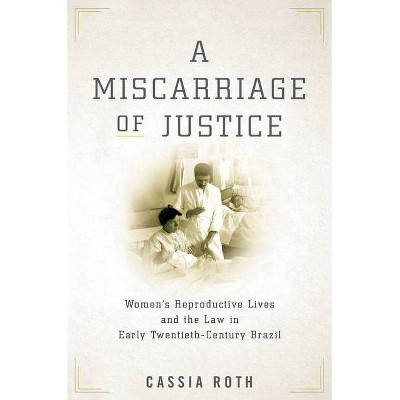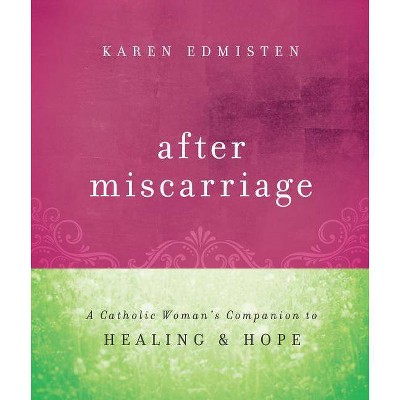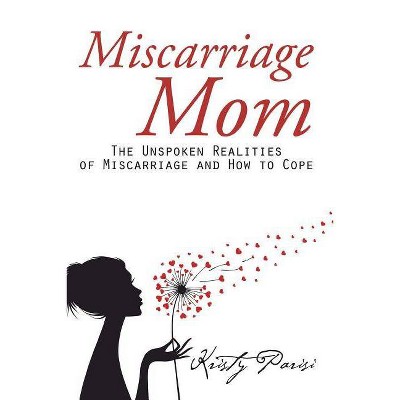A Miscarriage of Justice - by Cassia Roth (Paperback)

Similar Products
Products of same category from the store
AllProduct info
<p/><br></br><p><b> About the Book </b></p></br></br><i>A Miscarriage of Justice</i>examines the intersection of women's reproductive health and state formation in early-twentieth-century Rio de Janeiro, Brazil.<p/><br></br><p><b> Book Synopsis </b></p></br></br><p><i>A Miscarriage of Justice</i> examines women's reproductive health in relation to legal and medical policy in Rio de Janeiro, Brazil. After the abolition of slavery in 1888 and the onset of republicanism in 1889, women's reproductive capabilities--their ability to conceive and raise future citizens and laborers--became critical to the expansion of the new Brazilian state. Analyzing court cases, law, medical writings, and health data, Cassia Roth argues that the state's approach to women's health in the early twentieth century focused on criminalizing fertility control without improving services or outcomes for women. Ultimately, the increasingly interventionist state fostered a culture of condemnation around poor women's reproduction that extended beyond elite discourses into the popular imagination. </p> <p>By tracing how legal thought and medical knowledge became cemented into law and clinical practice, how obstetricians, public health officials, and legal practitioners approached fertility control, and how women experienced and negotiated their reproductive lives, <i>A Miscarriage of Justice</i> provides a new way of interpreting the intertwined histories of gender, race, reproduction, and the state--and shows how these questions continue to reverberate in debates over reproductive rights and women's health in Brazil today.</p><p/><br></br><p><b> Review Quotes </b></p></br></br><br><i>A Miscarriage of Justice</i> is an impeccably researched feminist history of reproduction that centers the lives and deaths of women in the Brazilian capital of Rio de Janeiro during the early 20th century...Highly recommended.--B. A. Lucero "<i>CHOICE<i>"<br><br>Cassia Roth's lively and well-researched book, <i>A Miscarriage of Justice</i>, is a welcome addition to [writing reproduction into the history of human society]. This exploration of the politics of reproduction in twentieth-century Rio de Janeiro operates on two levels. First, the author attends to the political, medical, and legal discourses and practices that constructed and, with varying degrees of success, sought to regulate women's reproductive lives. Second, she pays careful attention to the meanings and experiences of reproduction for pregnant and parturient women themselves, as well as for their families and communities.--Nara Milanich "<i>H-LatAm</i>"<br><br>In <i>A Miscarriage of Justice</i>, Cassia Roth provides an innovative and unique history of reproduction in Brazil, weaving together medical and legal directives on childbirth, abortion, and infanticide alongside the intimate, embodied experiences of gendered 'crimes' and social inequalities in Rio de Janeiro. Taking a broad view of reproductive health that explores motherhood, infanticide, and abortion simultaneously, Roth argues that the surveillance and criminalization of women's reproductive practices and of their racialized bodies were critical anchors of Brazilian state-building, especially during the complex years of the authoritarian Estado Novo. This is a deeply researched, sophisticated, and insightful study with significant implications for understanding reproductive justice issues even in contemporary politics.--Okezi T. Otovo "Florida International University"<br><br>Roth's remarkably wide-ranging research offers a comprehensive and nuanced analysis of the science, law, politics, and lived experiences surrounding women's reproduction in Rio de Janeiro in the first half of the twentieth century. Deeply contextualized in the social, economic, and cultural history of post-abolition Brazil, <i>A Miscarriage of Justice</i> interrogates the dialogue between local and global histories of medical and legal sciences while maintaining focus on individual women whose reproductive lives were increasingly pathologized and criminalized. This remarkable book is sure to become required reading in the fields of Latin American and gender history.--Sueann Caulfield "University of Michigan"<br><br>Told with care and from a place of deep empathy, the heartbreaking stories in <i>Miscarriage of Justice</i> bring Brazilian women back into their own history, which has been told about them, but rarely through and with them. While a patriarchal legal system and medical institution tightened its control around women's reproductive lives, Roth shows through these women's stories that they wrested that control back in whatever way they could.--Leila A. McNeill "<i>Lady Science</i>"<br><br>With straightforward elegance, Roth conveys the harsh realities of women's reproductive experiences in Brazil in a time of great social transformation. Fully accounting for the historical, political, and cultural complexities of their interactions with the larger community and the state, the author documents both change over time and the continuity of women's legal--and even existential--disenfranchisement through varying political regimes.--Julia E. Rodriguez "University of New Hampshire"<br><p/><br></br><p><b> About the Author </b></p></br></br><b>Cassia Roth</b> is Assistant Professor of History and Latin American and Caribbean Studies at the University of Georgia.
Price History
Price Archive shows prices from various stores, lets you see history and find the cheapest. There is no actual sale on the website. For all support, inquiry and suggestion messagescommunication@pricearchive.us



















